From the August 1985 issue of Video Times. — J.R.
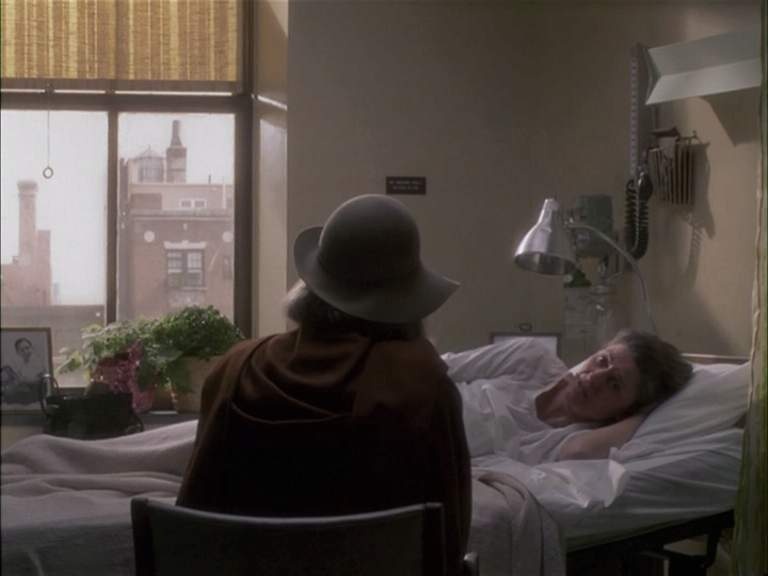
(1984), C, Director: Sidney Lumet. With Anne Bancroft, Ron Silver, Catherine Hicks, Carrie Fisher, Howard Da Silva, Hermione Gingold. 104 min. PG-13. Hi-Fi, CBS/Fox, $79.98. Three stars.
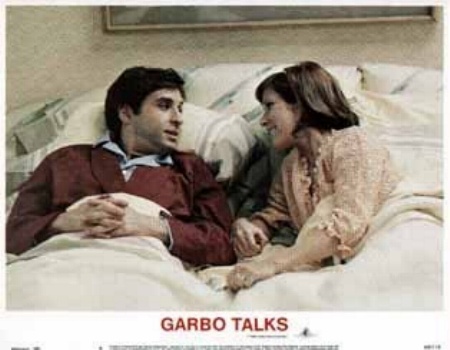
Perhaps the most delightful single aspect of thus warm, contemporary New York comedy is the degree to which it suggests anything but a movie of the present. From the animated cartoon behind the opening credits to the winsome conclusion in central Park, Garbo Talks registers more like a Hollywood film of the sixties or seventies than an expression of today’s sensibilities. (Where’s Poppa?, an absurdist comedy of 1970, provides a useful cross-reference.) The fact that scriptwriter Larry Grusin and director Sidney Lumet both seem perfectly aware of this adds a tang of irony to the film’s pleasure. They know, as we do, that lovable, eccentric radical like Estelle Rolfe (Anne Bancroft), who would have seemed almost commonplace in a movie 10 or 15 years ago, comes across as an audacious concept in the mid-eighties.
The plot of Garbo Talks is built around Estelle, and the role fits Anne Bancroft like a glove. The movie manages to milk the maximum out of her performance — one of the best in her impressive career — without keeping her onscreen any longer than is absolutely necessary. Read more
From Film Comment, November-December 1992. I’m not sure which of the stills directly below is printed backwards, so I’m including both of them.– J.R.
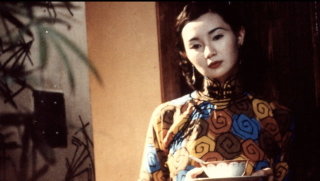
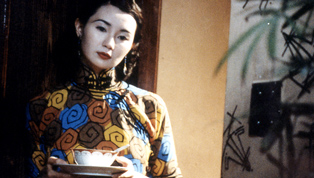
My 13th year at the Toronto Festival of Festivals reconfirmed my feeling that it’s large enough to satisfy many disparate and even contradictory viewing agendas. But even with a reported 320 films this year, it can’t be said to accommodate every taste. That is, one can generally count these days on the festival showing every new film by Paul Cox, Manoel de Oliveira, Henry Jaglom, Stanley Kwan, and Monika Treut, but not every new feature by Jean-Luc Godard, Jean-Pierre Gorin, Raul Ruiz, or Trinh T. Minh-ha (whose latest offerings were all absent this year) — or any work at all by Jean-Marie Straub and Danièle Huillet, Harun Farocki, or Leslie Thornton. Certain thresholds are maintained regarding difficulty, and while Toronto audiences are possibly the most polite and appreciative that I know of anywhere, the programmers don’t seem eager to test their limits. After the screening of his delightful and significantly titled Careful, Winnipeg weirdo Guy Maddin pointedly observed that if a Canadian sees a great movie, he or she says it’s pretty good, and if a Canadian sees a terrible movie, he or she says it’s pretty good. Read more
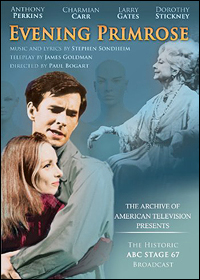
An extremely odd 1966 Steven Sondheim TV musical (1966) — 52 minutes, in black and white — adapted by James Goldman from an equally odd john Collier story of the same title about a poet (Anthony Perkins) who decides to live in a Manhattan department store and discovers an entire community of after-hours eccentrics already camped out there, including a wispy maiden (Charmian Carr) who’s spent most of her life there, whom he falls in love with and teaches how to read. Perkins, by the way, is a pretty delightful singer. The fact that part of this show was actually shot on location in and around a 42nd Street emporium is only part of what’s so strange about it. But I find it impossible to guess how peculiar it might have looked 44 years ago, because I’ve just seen it for the first time.
A good-quality, newly discovered kinoscope print of this ABC Stage 67 broadcast is what led to this recent DVD release. Among the useful and thoughtful extras is an extended interview with the now-retired director, Paul Bogart — a TV veteran who also directed Torch Song Trilogy back in 1988, and who offers a thoughtful autocritique, at once modest and apt, of his own contributions. Read more





